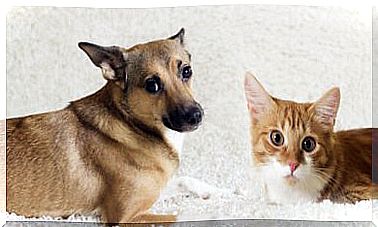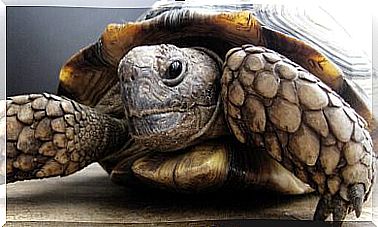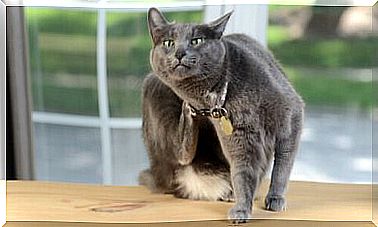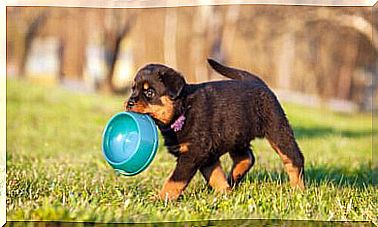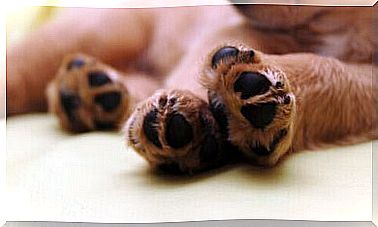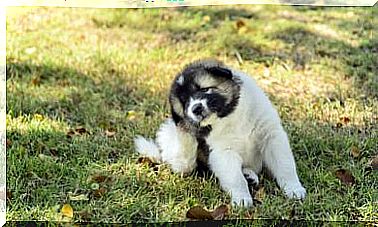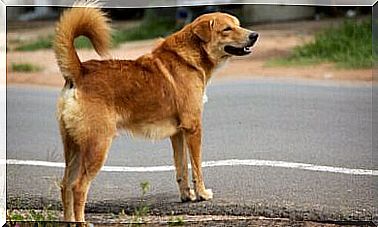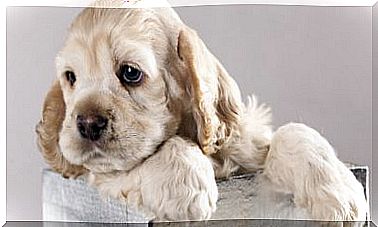Obesity In Rabbits: Symptoms And Causes
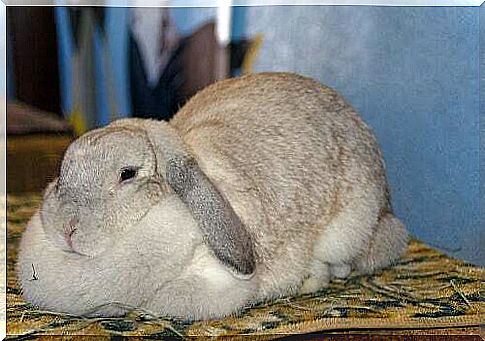
Obesity in rabbits can cause more serious diseases than you think. As with humans, being overweight in dogs, cats and even birds can have serious health consequences for your pets.
In fact, obesity is considered a full-fledged health problem even with regards to pets and, as such, should be addressed. In this article, we will talk about obesity in rabbits, focusing mainly on the causes and symptoms of a problem that can even become serious.
Obesity in rabbits: symptoms and causes
Overeating is usually one of the most common causes of obesity in rabbits. However, this factor alone may not have serious consequences for the physiognomy of a very active rabbit, as exercise can keep weight at bay.
Inactivity
If a rabbit consumes fewer calories than it eats, it will gain weight. Since many pet rabbits spend a large part of their life in cages, obesity is a common problem.
Foods containing sugar
Many pet owners choose to offer their rabbits only natural foods that do not contain sugar, instead of buying what the pet store sells. It is a healthy choice that takes into account the health of your pet.
How to recognize if your rabbit is obese?
A rabbit is obese when its body fat exceeds the adequate amount based on its size. For each species of rabbit there is a standard which depends on the breed and which indicates the permitted size and weight.
These rules are not strict, but they should be used as a guide for judging whether your rabbit has the appropriate weight for its breed.
Think that there is a scale that establishes the conditions of the rabbit’s body: it is used to monitor the weight of the rabbit. This body condition score scale ranges from one to five. Typically, three would be the ideal condition.
One way to take this type of scale into account is, for example, to palpate the ribs. If you can hear them, but they are not easily seen, it is usually marked as three. If the ribs protrude too much, your rabbit suffers from low weight.
If you cannot feel your rabbit’s ribs or if you have to work hard to feel them, then your rabbit is overweight. Your vet should help you confirm this information, as his health will depend on it.
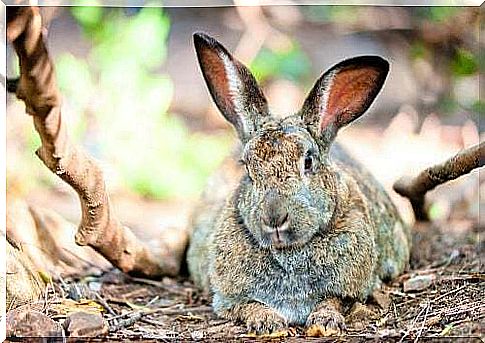
Consequences of obesity in rabbits
Obesity in rabbits is associated with many diseases. These include myiasis, pododermatitis, toxemia of pregnancy, and even paralytic ileus (or gastrointestinal stasis), among other things.
Myiasis, one of the causes of obesity in rabbits
Myiasis is also known as worm infestation. Since overweight rabbits cannot be groomed properly, they are more likely to have particularly dirty areas of the body that attract flies. One of the most common areas, for example, is the rectum and the genital area.
Flies lay their eggs there, which become worms. If you don’t regularly check and clean your rabbit, these worms can easily go unnoticed. Worms can cause secondary infections, injuries, and even damage to internal organs.
Pododermatitis
This condition is often due to a sedentary lifestyle or because the state of obesity in the rabbit causes too much pressure on the paws.
Also, rough and unclean surfaces are contributing factors to this inflammation. Pododermatitis lesions are painful and can be difficult to treat and clean. You need to be aware of the early symptoms, which generally include lameness.
Gastrointestinal stasis (paralytic ileus)
This problem is very common in rabbits as pets. Obesity alone cannot cause a rabbit to stop eating and develop paralytic ileus, but due to all the other problems that can be associated with obesity, it is definitely a high risk factor.
What to do to prevent obesity in rabbits?
Obviously, the simplest thing to do to help prevent obesity in rabbits is to feed them properly. You need to choose the right type and amount of food and get him to exercise to maintain his ideal weight. Obesity in rabbits: symptoms and causes.
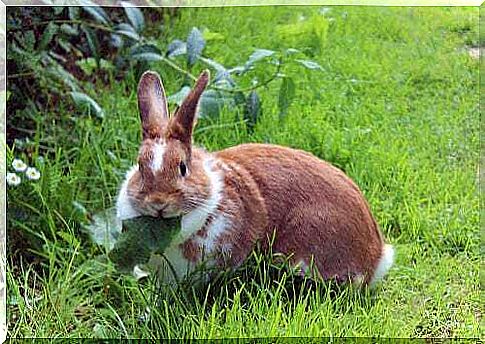
Keep in mind that hay is vital to a rabbit’s health and should be the main part of its diet. Feeding and treats are usually the reasons for weight gain, so they should always be limited in adult rabbits.
It is recommended that you avoid sugary or fatty foods, such as sunflower seeds and many types of grains. Instead, we recommend using a strawberry or carrot as a special treat for your rabbit. For him it will be as good as a sugar cube.
Exercise, the best ally to fight obesity
In addition to proper nutrition, you will need to run and exercise your rabbit. Ideally, a rabbit should never be caged, but should have a room of their own or a large area with a lawn to live and explore. You are reading about obesity in rabbits: symptoms and causes.
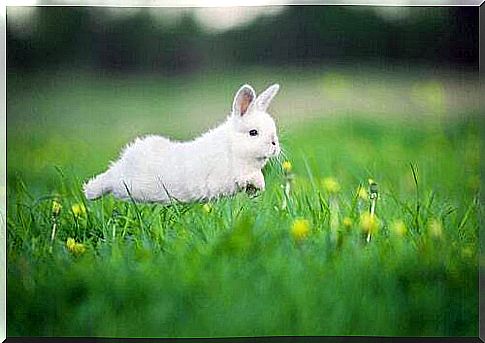
This will not only stimulate his mind but also keep him slim and happy. If you have no choice but to keep your rabbit in a cage, you can still let him exercise.
You can ensure that the animal does not enter an unsafe area by using special rabbit fences. You can easily find them in pet stores. Either way, your rabbit should play and exercise for at least three hours a day.
Remember that rabbits run several kilometers a day when they are free. Therefore, the least you can do is let them play in your home for a few hours.
